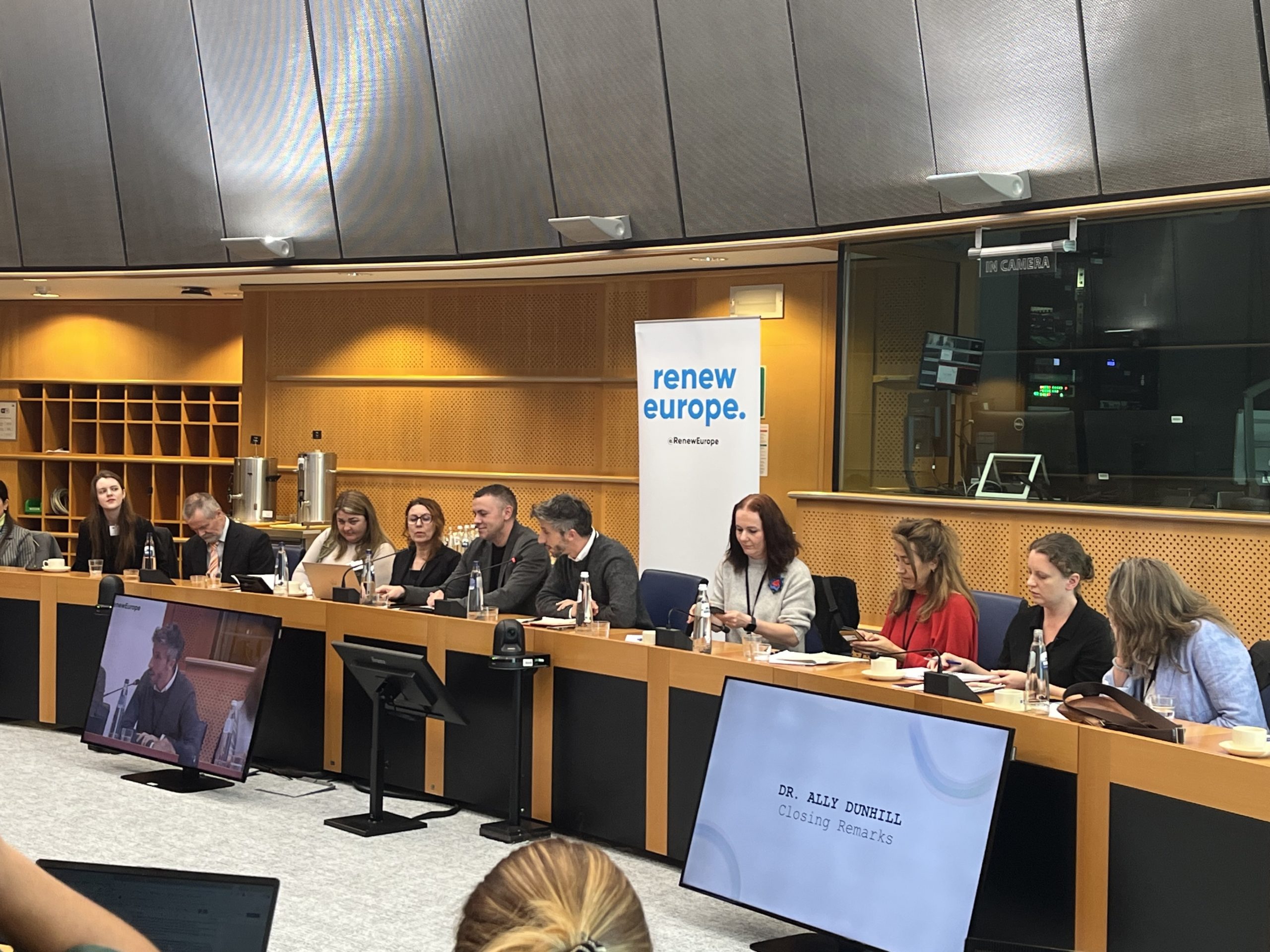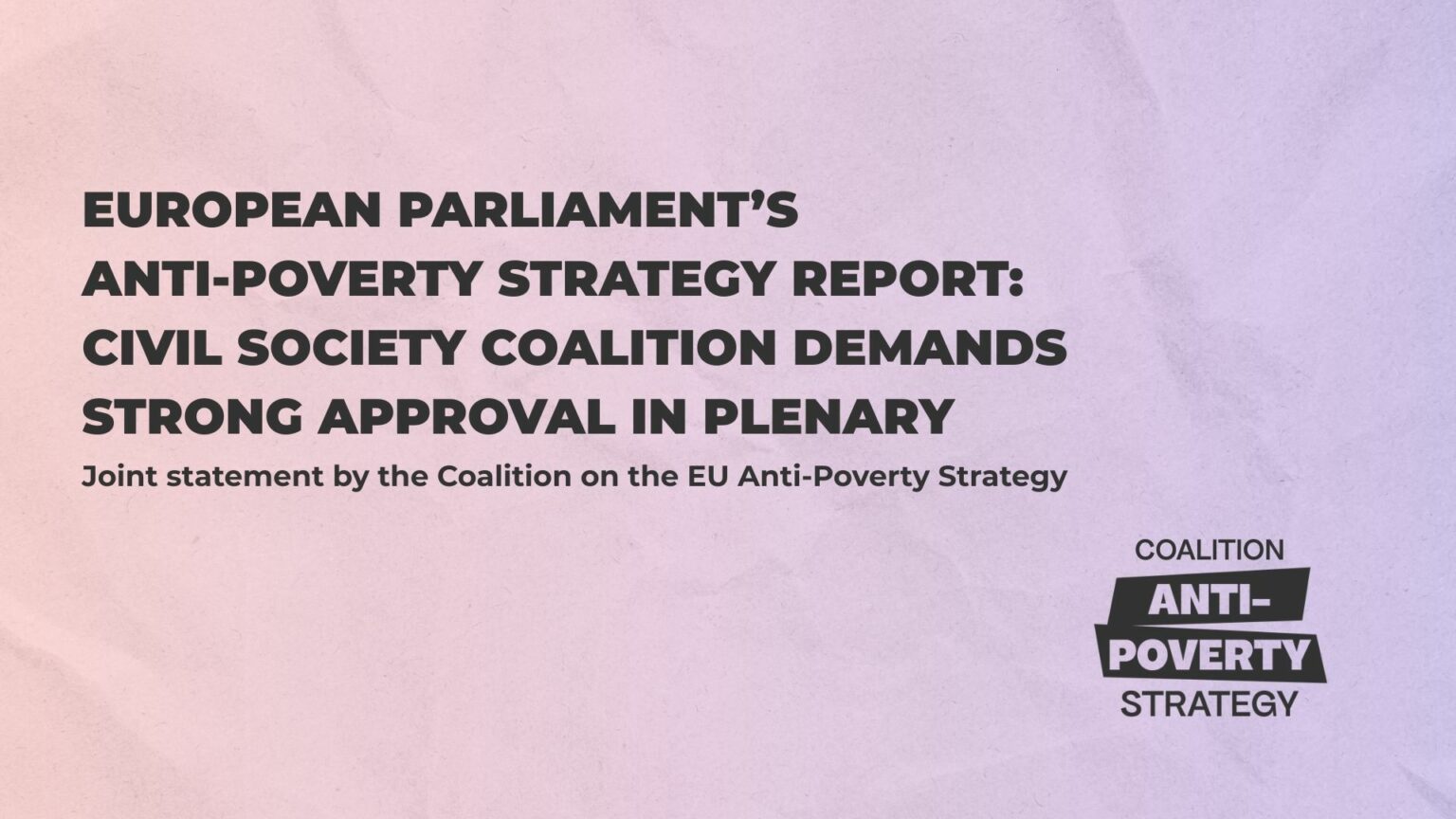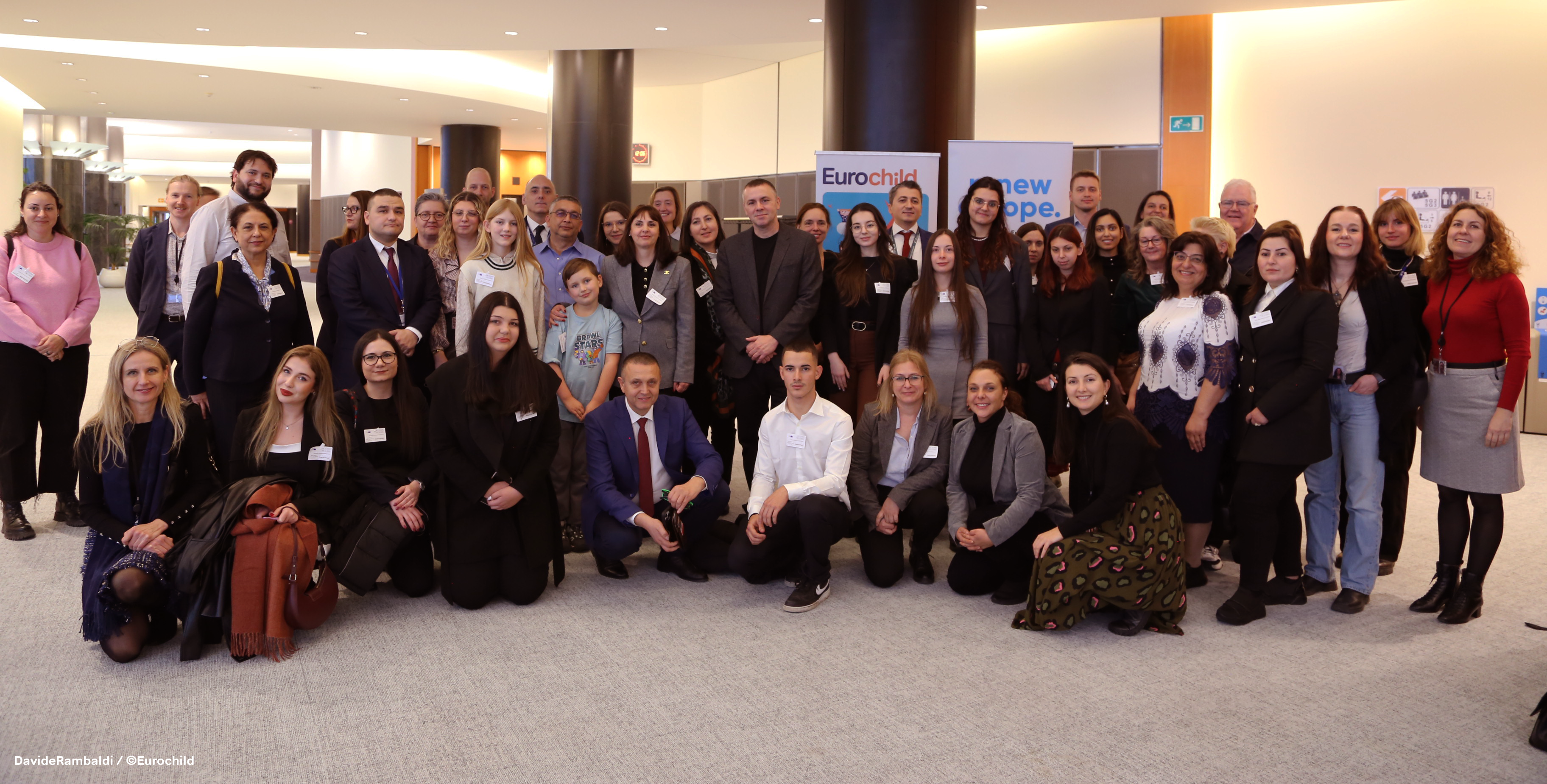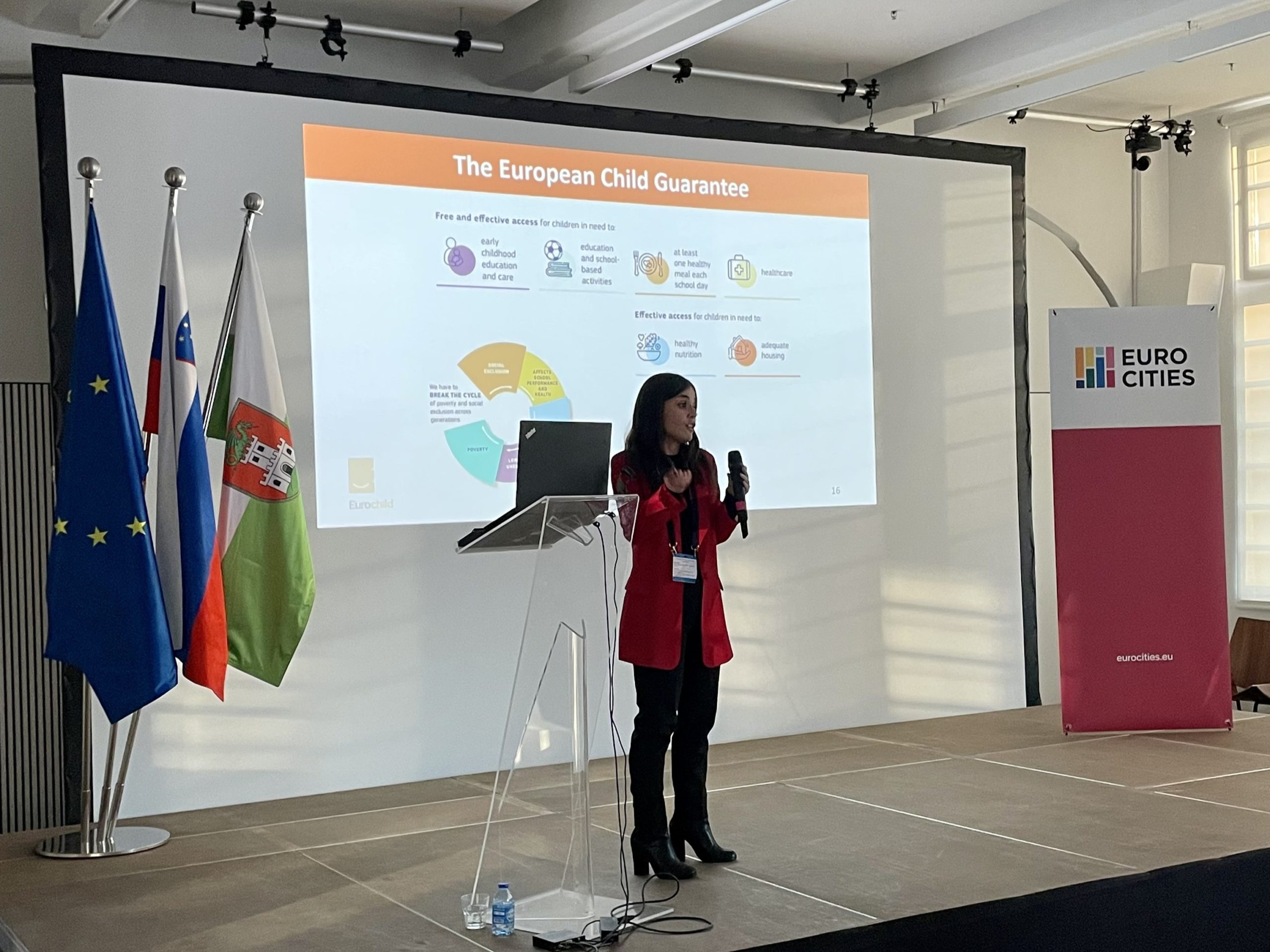Anti-Poverty Day 2025: Putting children and lived experience at the centre of Europe’s Anti-Poverty Strategy
Eurochild calls for the creation of a shared library of promising practices on the European Child Guarantee.
On 5 November 2025, the European Parliament in Brussels hosted the first-ever Anti-Poverty Day, organised by the European Anti-Poverty Network (EAPN) in collaboration with the European Parliament’s Intergroup on Fighting Against Poverty.
The event gathered MEPs, EU officials, civil society, grassroots movements, and children and people experiencing poverty to discuss how to make Europe’s social policies, including the upcoming EU Anti-Poverty Strategy, more inclusive and effective. MEP Hristo Petrov’s contribution was instrumental to the organisation of the event and the child poverty session.
Child Poverty at the Core of the Debate
Eurochild, together with members of the Alliance for Investing in Children, co-organised a workshop on child poverty. Opening the session, Enrico Tormen, Save the Children, stressed that one in four children in Europe lives at risk of poverty, with particular high rates among children with a disability, Roma children, and those in alternative care.
Speakers emphasised that investing in children is both a moral imperative and a sound economic investment. They called for the European Child Guarantee (ECG) to be fully integrated into the upcoming European Anti-Poverty Strategy. With negotiations on the next Multiannual Financial Framework (MFF) underway, sustained investment is essential to meet the EU’s child-related targets.
Strengthening Implementation and Sharing Practices
In breakout discussions, participants explored how to reinforce the ECG. Several speakers, including Eurochild, COFACE, ATD Fourth World, and a young representative from Save the Children North Macedonia, highlighted the need for stronger government accountability, including through the European Semester, systematic CSO involvement, and the inclusion of child-specific indicators, particularly on early childhood education and care (ECEC).
Zuzana Konradova from Eurochild explained that for the first time, the 2025 European Semester reports included progress on the ECG implementation in all Member States. Moreover, 2 countries received recommendations on child poverty, notably for Spain and France, signalling that the ECG is beginning to influence EU policy coordination. Yet participants called for compulsory integration of the ECG into the Semester, ensuring more Country Specific Recommendations on children.
Examples of good practices included Portugal’s local data harmonisation, Spain’s Roma mediator programmes, and Slovakia’s Way Out Project. However, persistent gaps remain for undocumented children, those leaving alternative care, and Roma communities. Better policy coherence across sectors and levels of governance is vital for effective implementation.
A Political and Moral Imperative
MEP Hristo Petrov reminded participants that “fighting child poverty is a matter of justice.” He urged EU and national policymakers to turn promises into real funding and actions.
Towards a Shared Knowledge Base
Closing the session, Dr Ally Dunhill from Eurochild underlined the need to better understand who are the children and families most in need, and what they need, “We still don’t know enough about what works, for whom, and under what conditions.” She also called for a shared library of promising practices among civil society actors. “If we share knowledge more systematically, we can accelerate change for children across Europe.”
The Way Forward
The first Anti-Poverty Day delivered a clear message: no European Anti-Poverty Strategy can succeed without tackling child poverty head-on. Strengthening the Child Guarantee requires:
- Maintaining earmarked EU funding to fight child poverty,
- Improving civil society participation,
- Ensuring cross-sector and multilevel governance coordination.
Turning the European Child Guarantee into a lived reality for every child must remain at the centre of Europe’s social ambition.





